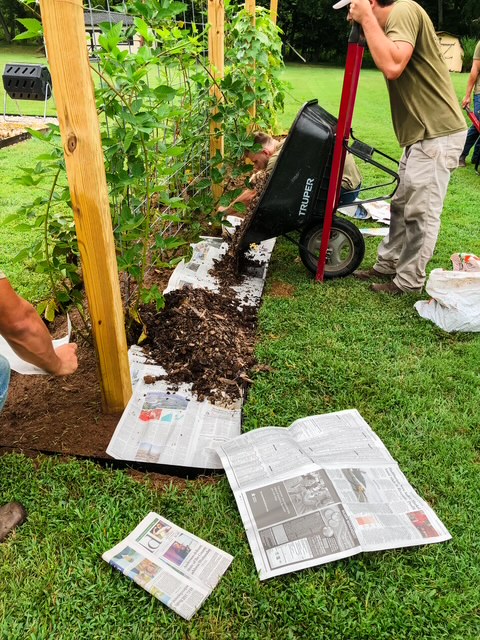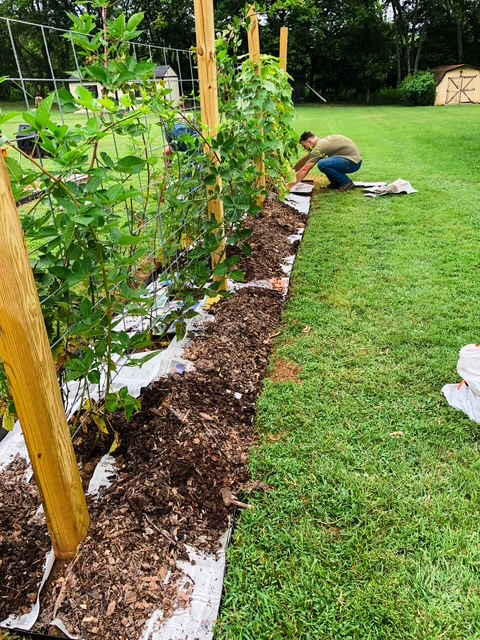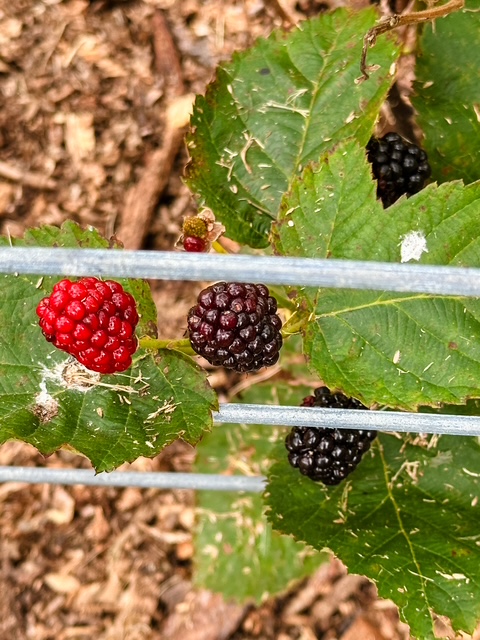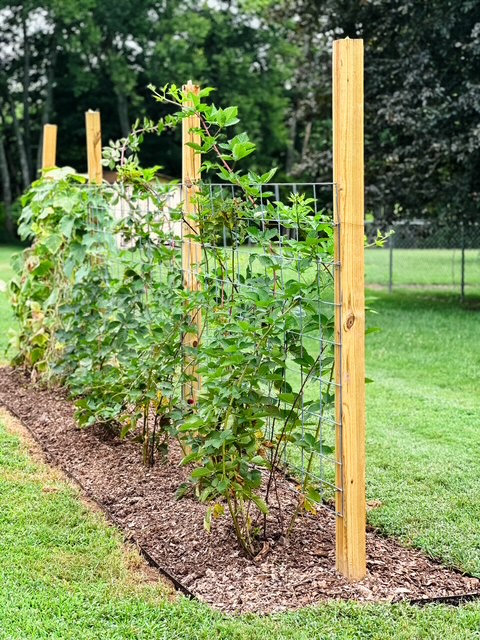Just listen to the gratifying sound of compost tea brewing in my soil lab. Compost tea is a living fertilizer for the garden: a soup full of bacteria, fungi, protozoa, and nematodes.
These microbes are the alchemists that break down organic matter into smaller building blocks. By adding compost tea to the soil around the plants, we are actually adding microbial life to the soil which provides nutrients naturally for the plants–so, it is essentially a living fertilizer without chemicals. Last Fall, I created a “living soil” compost pile. It was for the express purpose of brewing this compost tea that I created that compost and now it has matured over the winter.
Compost tea is concentrated, and is often diluted with water prior to application. It can be used for either a root fertilizer or a foliar spray. My goal in brewing compost tea involved the culturing and preening of beneficial aerobic (oxygen loving) microbes, while in turn discouraging the growth of anerobic (oxygen avoiding) organisms.
The chemistry may be complex, but the methodology is simple.
1. A few handfuls of compost (about 4 cups) in a brew bag is placed into a bucket (5-gallon for me for small batches) in which beneficial microbes are encouraged (by oxygen infusion and fish emulsion food) to multiply.
2. An oxygen pump (like one used in a large fish aquarium) is attached to a “snake bubbler” which infuses oxygen into the bottom of the bucket, percolating up through the tea and the soil. A handful of fish emulsion is added to the bucket to feed the microbes.
3. Brew continuously for 24-48 hours. Because oxygenated compost tea has no shelf life, it must be applied to the garden as soon as the brew cycle is complete.
The oxygen releases the micro-organisms from the compost into the water. When that huge microbial populations is turned loose into the garden, orchard, vineyard, yard, or pasture, you are effectively re-introducing beneficial healthy life forms into your environment. This is the process of creating living soil. Using compost tea is like using compost multiplied by 100.
What are the Benefits of “Living Soil”?
*These microscopic organisms help your plants uptake nutrients and fend off diseases, creating healthier plants.
*Nutrient dense fruits, vegetables, herbs, and flowers are tastier and support better human health.
*Protects your garden from pests and diseases.
*Allows you to use less water on your garden as the root zone structure is improved.
This is the first year for this small thornless blackberry patch. We are just now getting around to giving them a good soil drench of compost tea and tucking them in with wood chips to finish out the growing season. If you are interested in creating compost tea for your own garden but you don’t want to invest the time and energy into creating a living soil compost pile, the folks at Compost Tea Lab have made it easy for you (click on the link). They have Compost Tea Brew Kits that come with everything you need to grow healthier plants and tastier food organically.





